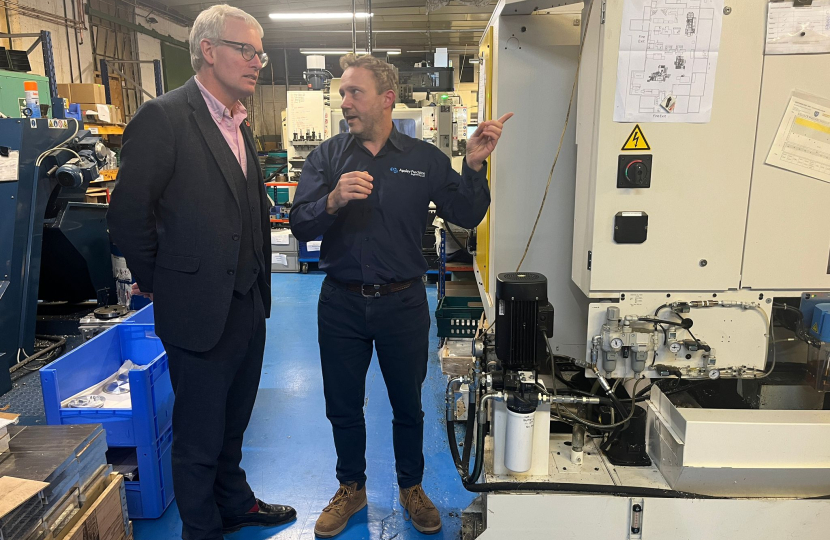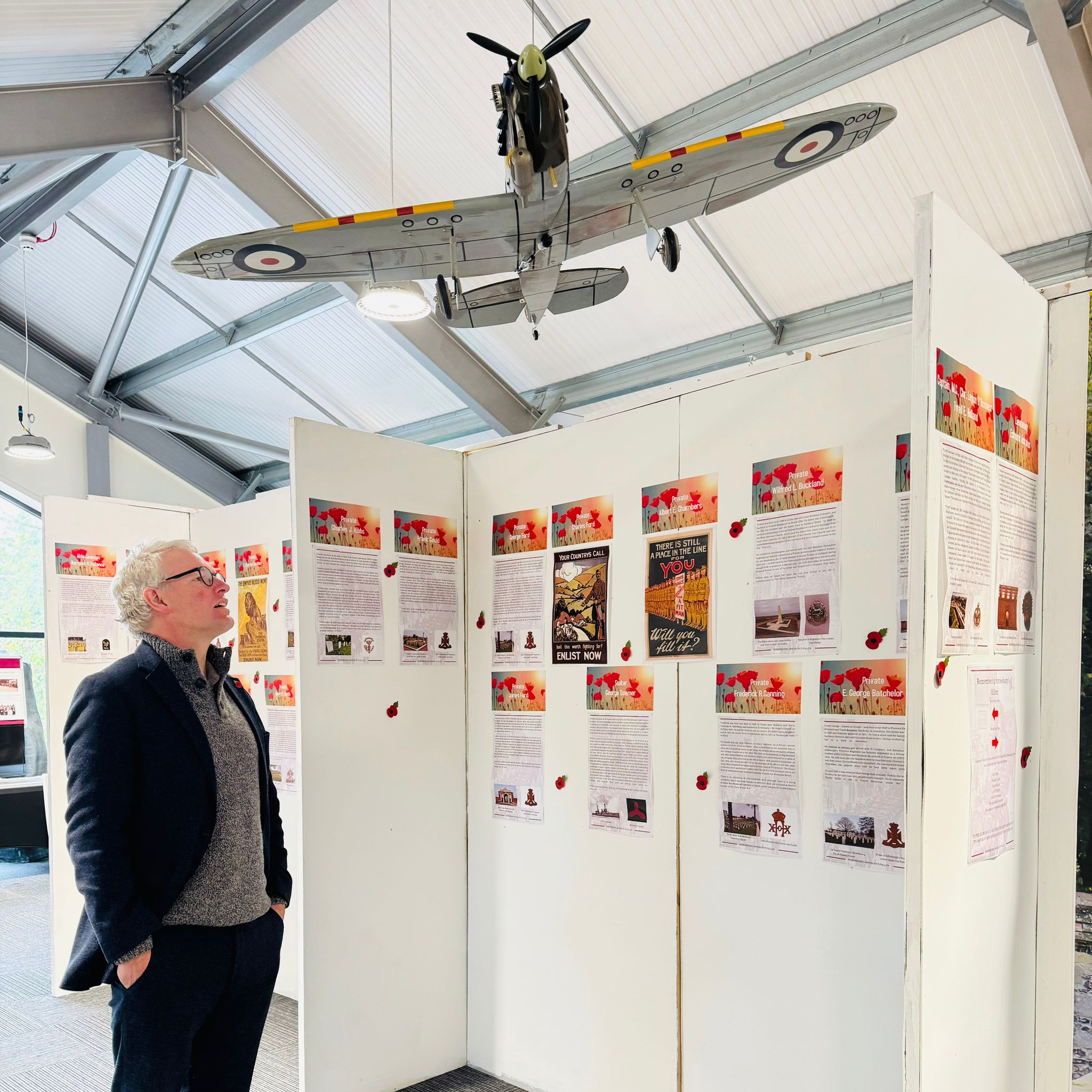
High Post - where the Stones Hotel is, above the Woodford Valley south of Amesbury - was a Spitfire factory in the War. The fuselages would be made in workshops and garden sheds in Salisbury, then towed up here where their wings were bolted on. Then the pilots of the Women's Auxiliary Air Force would fly them off the runway - now a ploughed field - and to their bases around southern England.
Brave boffins have been making pyrotechnics and what are now called countermeasures (defensive munitions to protect ships and planes) at High Post since the 1920s. Now it is home to Chemring, a major global business employing 400 people in Wiltshire, who supply most of NATO with flares and chaff to divert enemy missiles.
Also at High Post, crammed into an old Spitfire assembly shed, is Apsley Engineering, another brilliant British company making precision components for everything from munitions (Chemring is a major customer), to neonatal incubators, to something (I didn’t quite follow to be honest) for the European Organisation for Nuclear Research (CERN), home of the Large Hadron Collider.
These are the sorts of businesses Britain excels in, and which carry the promise of the future. Wiltshire is rich already, and richer in potential, in these high-value firms, especially those serving the military economy on which our security depends. (On which subject, here I am ‘flying’ an F35 over a simulated Texas the other day, at an expo detailing how much the ubiquitous fighter jet is kitted out by UK firms).
I spoke this week in the debate on the Budget. The worst of the government’s plans aren’t the broken promises on NICs or borrowing, or even the egregious imposition of inheritance tax on family farms (which I will oppose with all my might - here I am with local farmer Dave Lemon this week discussing the impact the tax will have on his family).
The worst of the Budget is the missed opportunity to do what Rachel Reeves claims to be doing, but plainly isn’t: ‘fixing the foundations’ of the British economy. The foundations are labour (over-taxed, over-regulated, and now to be given new ‘rights’ that will make it far less likely for firms to take on workers at all); capital (also over-reg’d and, despite the City, seemingly unable to invest itself in UK firms); and land.
Land is of course the foundation of everything, from our families’ homes to the workplaces that pay the bills. Yet we allocate it terribly badly. Labour want to cover the rural landscape with houses while neglecting to build in the cities where the demand for housing is. And they neglect what rural places really need: good jobs in local firms.
Chemring and Apsley Engineering are both working at full capacity, with their order books filled for years ahead; both need more space, and would take on more work - and more workers, and local apprentices - if they had the physical space for them.
Whether these businesses should grow at High Post is a matter for the council planning department, working in consultation with local people; I have no say in where development happens. But as I said in my budget speech it is imperative we free up more land for business and industry across Wiltshire.
Saturday morning I spent in Amesbury, meeting residents in Archers Gate and then popping into the wonderful new history centre which opened last year. This town is, of course, the oldest habitation in the British isles. The history centre is commemorating more recent heroes, with an exhibition detailing all that is known of the sons of Amesbury who died in the Great War.

I was back this morning, for Remembrance Sunday, processing through the town among a squad of British and Gurkha veterans to the War Memorial. The names of the dead were read out in the clear voices of local schoolchildren. We sang Our God, Our Help in Ages Past, with its line ‘Sufficient is thine arm alone, And our defence is sure’. I agree, but it’s good to have the Gurkhas, the Gunners, and Chremring too.





